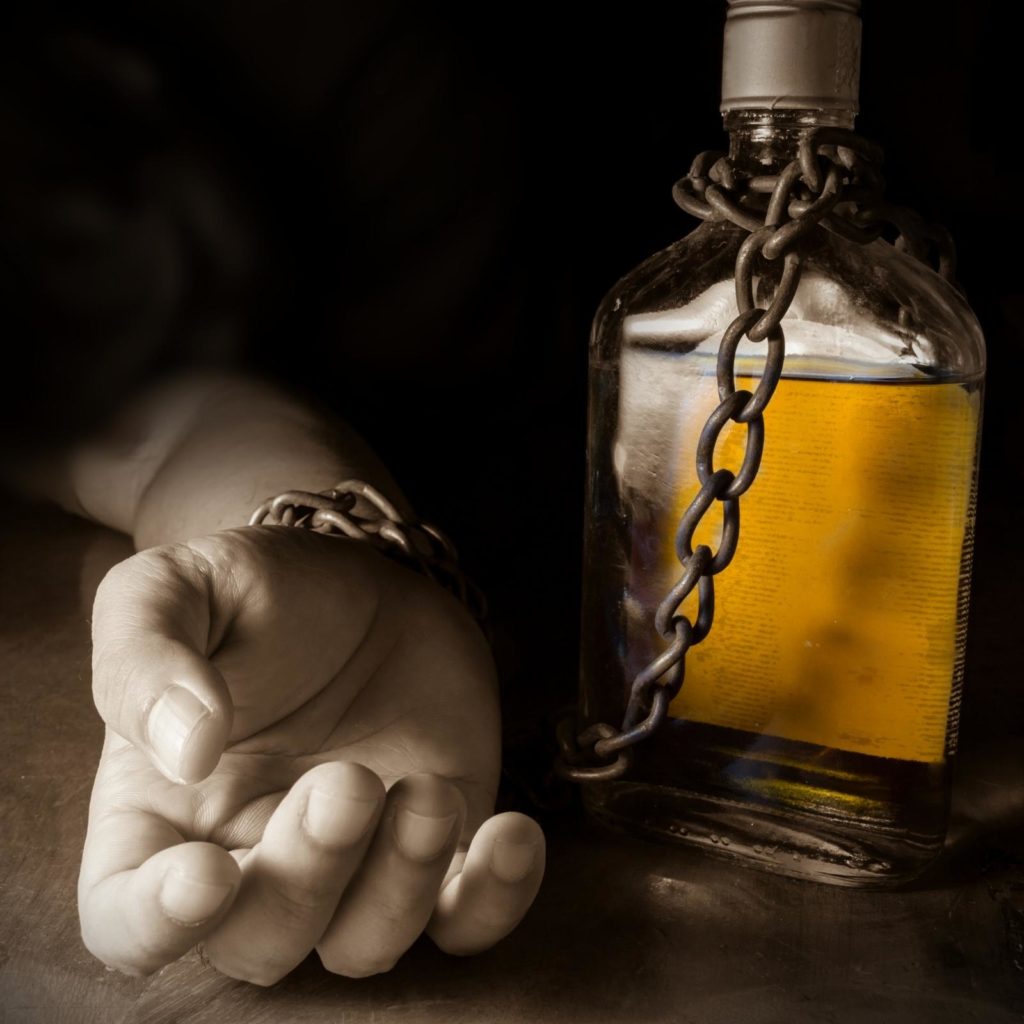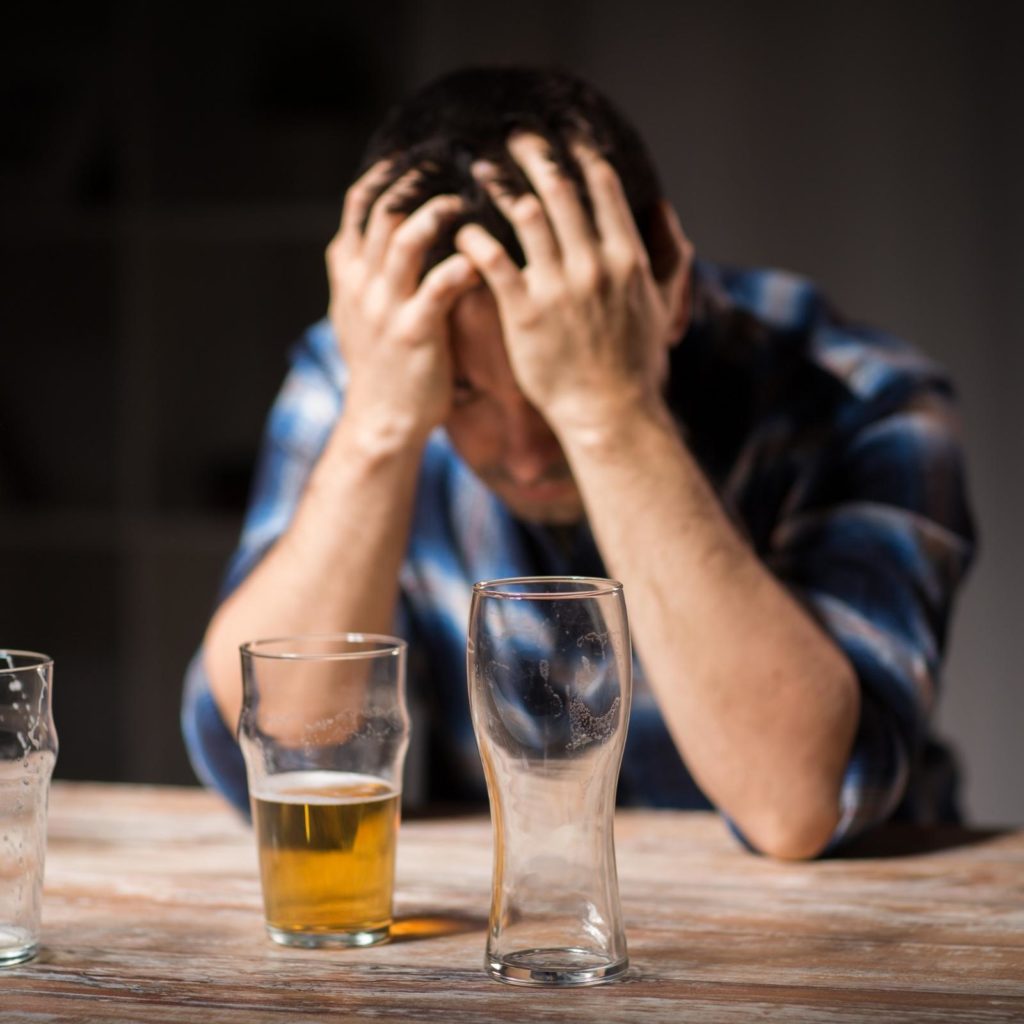What Is An Alcohol Blackout?
Alcohol backouts tend to begin at blood alcohol concentrations (BACs) of about 0.16 percent (nearly twice the legal driving limit) and higher. At these BACs, most cognitive abilities (e.g., impulse control, attention, judgment, and decision-making) are significantly impaired. The level of impairment that occurs at such high BACs makes the intoxication level associated with blackouts especially dangerous.
Blackouts are more likely when BACs rise very quickly—that is, usually when people drink on an empty stomach or when they engage in “shotgunning” (taking a drink from a bottle that’s already open).
Getting into an Alcohol Blackout doesn’t necessarily mean that a person is unconscious or went to sleep because of too much alcohol consumption.
People often continue to interact with others, engage in routine or potentially dangerous behaviors, and even continue to drink. People who black out may drive themselves home, engage in a sexual encounter, destroy property, spend too much money, or choose other risky behaviors.
People who have alcohol blackouts are more likely to physically injure themselves. They have also been known to walk home, brush their teeth, eat meals, or go through other normal behaviors. They do not remember these behaviors because their brain does not move those experiences into memory. Once the person begins to sober up, the brain will begin to process memories normally again.
Learn More:
- Alcohol Abuse
- Symptoms of Alcohol Use Disorder
- Alcoholism and Financial Problems
- Alcohol and Aging
- Alcohol and Insomnia
- Kindling Alcohol
- Alcoholic Cirrhosis
- Mixing Prescription Drugs with Alcohol
- Emotional Effects of Alcohol
- What is Wet Brain in Alcoholics
- Dry Drunk Syndrome
- How To Relax Without Alcohol?
- How to Relieve Stress Without Alcohol?
- How To Stop Drinking Alcohol
- How to Help an Addict Who Doesn’t Want Help?
- Inpatient Alcohol Rehab Center
- Alcoholic Recovery: How to Help an Alcoholic?
- Alcoholism Treatment, Signs, Complications & Rehab Programs
- Alcoholism Treatment Near Me
- Alcoholic Hepatitis Treatments
- Alcohol Withdrawal Treatment
What Causes a Blackout From Alcohol?

Binge drinking is the primary cause of an alcohol blackout. The more alcohol a person consumes in a set amount of time, the more likely they will experience a blackout. A rapid rise in blood alcohol levels is what ultimately causes a blackout to occur.
It’s believed that as blood alcohol rises, the brain cannot transfer short-term memories into long-term memories. This means that, during a blackout, someone may be able to recall something a few minutes after it happened but not remember it several hours later.
They are consuming alcohol while dehydrated or on an empty stomach can increase the risk of a blackout. These conditions allow blood alcohol levels to rise much quicker than when someone is hydrated or has recently eaten. Additional factors that can influence the occurrence of a blackout include a person’s weight, gender, and the type of alcohol consumed.

Get Your Life Back
Find Hope & Recovery. Get Safe Comfortable Detox, Addiction Rehab & Dual Diagnosis High-Quality Care.
Hotline(844) 597-1011What Happens When You Blackout From Alcohol? Alcohol Blackout Symptoms
What happens when you black out from alcohol? According to the levels of intoxication a person can have in their body, there are some general symptoms that can be experienced. For reference, one unit is a 12-ounce beer; a 5-ounce glass of wine; or a 1.5-ounce shot of liquor, whether a straight shot or in a mixed drink.
- 4-6 drinks: The brain begins to experience the effects of alcohol. Judgment and decision-making abilities are impaired. The person’s reaction times will get slower, and they will feel lightheaded or woozy; however, the person is still likely to remember events.
- 8-9 drinks: Reaction times are slowed, and speech slurs. Vision may change, and issues with double vision or loss of focus may appear. A hangover is likely to set in for most moderate to heavy drinkers.
- 10-12 drinks: Coordination is severely impaired, and the risk of an accident and personal injury is very high. Drowsiness is likely. Dehydration and headache are more likely as the body processes alcohol, which is becoming very difficult for the liver and kidneys. Nausea, vomiting, diarrhea, and indigestion are all likely at this stage as well.
- More than 12 drinks: Alcohol poisoning is likely. Breathing, heart rate, and gag reflex can all change.
People who are not prone to blackouts may experience all of these symptoms in an evening of heavy drinking and remember them the next day. Those who are more prone to blackouts, however, will begin to experience them around 4-6 units of alcohol, especially when consumed in one hour; that puts the person’s BAC at 0.15 or higher.
The liver can only process one unit of alcohol per hour. When a person consumes two units of alcohol in one hour, their BAC reaches 0.08, and they legally cannot drive. They must wait until their liver has processed their beverages before they can safely get behind the wheel.
Get Help. Get Better. Get Your Life Back.
Searching for Accredited Drug and Alcohol Rehab Centers Near You?
Even if you have failed previously and relapsed, or are in the middle of a difficult crisis, we stand ready to support you. Our trusted behavioral health specialists will not give up on you. When you feel ready or just want someone to speak to about therapy alternatives to change your life call us. Even if we cannot assist you, we will lead you to wherever you can get support. There is no obligation. Call our hotline today.
(844) 597-1011What Happens to Your Brain When You Blackout From Alcohol?
For a long period of time, alcohol was thought of as a general depressor for the central nervous system. But now the consensus is those specific regions of the brain are selectively vulnerable to the acute effects of alcohol. A common Alcohol Blackout behavior is (a clear example of this) when the person is temporarily unable to form new long-term memories while relatively maintaining other skills such as talking or even driving.
A person cannot remember something that the brain did not record. Alcohol blackout interferes with receptors in the brain that carry signals between neurons or brain cells. Alcohol blackout affects some brain cells differently than others—it can inhibit some and later activate others—causing them to manufacture steroids that prevent memory formation.
The steroids produced by the alcohol-affected brain cells can reduce the strength of the brain’s connections between brain cells which is critical for learning and memory. The steroids interfere with synaptic plasticity or the brain’s communication system of passing signals between cells. This communication system is a necessary component of memory formation. Keep in mind that drugs can cause blackouts, too.

As stated by the scientific research, ‘Alcohol-Induced Blackout’, H. Lee,S. Roh, D. Kim, published by International Journal of Environmental Research and Public Health, “a recent study showed that alcohol can cause retrograde memory impairment, that is, blackouts due to retrieval impairments as well as those due to deficits in encoding. Alcoholic blackouts may be complete (en bloc) or partial (fragmentary) depending on the severity of memory impairment. In fragmentary blackouts, cueing often aids recall”.
“Memory impairment during acute intoxication involves dysfunction of episodic memory, a type of memory encoded with spatial and social context. Recent studies have shown that there are multiple memory systems supported by discrete brain regions, and the acute effects of alcohol on learning and memory may result from alteration of the hippocampus and related structures on a cellular level, they added”.
Blackouts vs. Passing Out
The primary cause of fainting is a temporary drop in blood pressure. When your blood pressure drops too low, your heart does not pump enough blood to your brain, so you lose consciousness. This is called syncope, which has many causes including:
- Vagus nerve stimulation or irritation. This is also called vasovagal syncope. When your vagus nerve gets stimulated, your heart rate and blood pressure can lower, leading to fainting. This can happen when going to the bathroom, having blood taken, receiving a shot, or experiencing extreme emotions.
- Standing too quickly. You may have experienced the feeling of getting lightheaded from standing up too quickly. Some people also faint from doing this. When that happens, it is called orthostatic hypotension.
- Internal bleeding. If you are bleeding internally, your blood pressure can drop.
- Heart problems. Several heart conditions can cause fainting including irregular heartbeat and valve dysfunctions.
- Epilepsy. Seizures can also cause fainting and full loss of consciousness, not just blackout.
First-class Facilities & Amenities
World-class High-Quality Addiction & Mental Health Rehabilitation Treatment
Rehab Centers TourRenowned Addiction Centers. Serene Private Facilities. Inpatient rehab programs vary.
Addiction Helpline(844) 597-1011Proven recovery success experience, backed by a Team w/ History of:
15+
Years of Unified Experience
100s
5-Star Reviews Across Our Centers
10K
Recovery Success Stories Across Our Network
- Low Patient to Therapist Ratio
- Onsite Medical Detox Center
- Comprehensive Dual-Diagnosis Treatment
- Complimentary Family & Alumni Programs
- Coaching, Recovery & Personal Development Events
What Happens When You Blackout From Alcohol? Alcohol Blackout Consequences
Alcohol blackout is a stage of alcohol intoxication that can be very dangerous and lead to life-threatening situations. We’re used to normalizing this level of intoxication, but if you are with a person who’s experiencing this, the experts recommend calling emergencies right away. At worst, it is possible to pass out while experiencing an alcohol blackout. This is likely due to a large quantity of alcohol in the body, and it could lead to choking on vomit, suffering a head injury from falling, or experiencing alcohol poisoning.
The individual may also suffer seizures due to the amount of alcohol in their body. A person who is exhibiting unusual, risky behavior or who passes out while drinking needs medical attention to prevent alcohol poisoning problems. Call 911 immediately.

Are Blackouts a Sign of an Alcohol-Related Problem?
Not everyone is equally prone to Alcohol Blackout. Recent studies have shown that some brains are more likely to suffer blackouts produced by heavy alcohol consumption than others. In particular, it affects some neural pathways that move memories from short-term to long-term storage.
As a result, people who binge drink may struggle with memory loss regarding the previous evening. It can be a sign of potential Alcohol Use Disorder, but not everyone that has this disorder suffers from Alcohol Blackouts, only about 40 percent of the population is prone to blackouts when drinking heavily.
Heavy alcohol consumption, especially when it occurs routinely, has been associated with brain damage as well as damage to several other organ systems in the body. However, there is little correlation Alcohol-Related Blackouts and brain damage. While a person who blacks out from drinking too much regularly will likely begin to experience brain damage, this is because they drink too much too often. Alcohol Blackouts are the only symptoms that occur when they drink too much.
Experiencing a blackout after drinking does not mean that a person has a substance abuse problem, but it does mean that they drank more than their body could process over the course of a day or evening. People who often complain about memory loss or blacking out after drinking are more likely to have alcohol use disorder, indicated by the fact that they consume alcohol on a regular basis, not that they experience blackouts.
However, people who have alcohol blackouts frequently from drinking too much are also likely to have a higher tolerance to alcohol, so their BAC will often be higher than 0.15 when they experience a blackout. For people with a higher tolerance to alcohol, a BAC of 0.2 or greater leads to a blackout. This is extremely dangerous since life-threatening alcohol poisoning begins at a BAC of 0.3
World-class, Accredited, 5-Star Reviewed, Effective Addiction & Mental Health Programs. Complete Behavioral Health Inpatient Rehab, Detox plus Co-occuring Disorders Therapy.
CALL(844) 597-1011End the Addiction Pain. End the Emotional Rollercoaster. Get Your Life Back. Start Drug, Alcohol & Dual Diagnosis Mental Health Treatment Now. Get Free No-obligation Guidance by Substance Abuse Specialists Who Understand Addiction & Mental Health Recovery & Know How to Help.
Alcohol Abuse
As stated by the National Institute on Alcohol Abuse and Alcoholism, these are the signs to be aware of in terms of this condition:
- Appearing intoxicated more regularly
- Appearing tired, unwell, or irritable
- An inability to say no to alcohol
- Becoming secretive or dishonest
- Drinking more, or longer than one intended
- Want to cut down or stop drinking, or tried to, but haven’t been able to do so
- Spending a lot of time drinking, being sick, or getting over the aftereffects
- Experiencing craving, a strong need, or an urge to drink
- Founding that drinking, or being sick from drinking, often interferes with taking care of your home or family, job troubles, or school problems
- Continuing drinking even though it was causing trouble with family or friends
- Giving up or cutting back on activities that are important or interesting to you, in order to drink
- More than once gotten into situations while or after drinking that increased your chances of getting hurt (such as driving, swimming, using machinery, walking in a dangerous area, or having unsafe sex)
- Continuing to drink even though it was making you feel depressed, anxious, or adding to another health problem, or after having had a memory blackout
- Having to drink much more than you once did to get the effect you want. Or finding that your usual number of drinks has much less effect than before
- Finding that when the effects of alcohol are wearing off, you have withdrawal symptoms, such as trouble sleeping, shakiness, irritability, anxiety, depression, restlessness, nausea, or sweating.
Alcohol Abuse Treatment Near Me
When it comes to Alcoholism treatment, it is normal to think of 12-step programs or 28-day inpatient rehab, but it becomes difficult to think of more options of treatment for this condition. There are a variety of treatment methods currently available. According to the National Institute on Alcohol Abuse and Alcoholism, there are three types of treatment:
- Behavioral Treatments for alcoholism: are aimed at changing drinking behavior through counseling. They are led by health professionals and supported by studies showing they can be beneficial.
- Medications for alcoholism: Three medications are currently approved in the United States to help people stop or reduce their drinking and prevent relapse. They are prescribed by a primary care physician or other health professional and may be used alone or in combination with counseling.
- Peer-Support Groups for alcoholism: Alcoholics Anonymous (AA) and other 12-step programs provide peer support for people quitting or cutting back on their drinking. Combined with treatment led by health professionals, mutual-support groups can offer a valuable added layer of support. Due to the anonymous nature of mutual-support groups, it is difficult for researchers to determine their success rates compared with those led by health professionals.
Experience Transformative Recovery at We Level Up Treatment Centers.
See our authentic success stories. Get inspired. Get the help you deserve.
Start a New Life
Begin with a free call to an addiction & behavioral health treatment advisor. Learn more about our dual-diagnosis programs. The We Level Up Treatment Center Network delivers recovery programs that vary by each treatment facility. Call to learn more.
- Personalized Care
- Caring Accountable Staff
- World-class Amenities
- Licensed & Accredited
- Renowned w/ 100s 5-Star Reviews
We’ll Call You
Search More Alcohol Blackout & Related Information
Sources
[1] Interrupted Memories: Alcohol-Induced Blackouts – National Institute on Alcohol Abuse and Alcoholism


